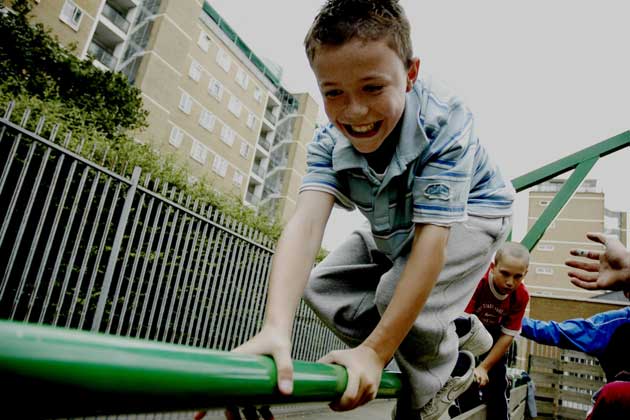Free running could be taught in secondary schools
Pilot scheme in London shows that the sport, which combines running with gymnastics, helped to cut youth crime by 30 per cent

Free running – the sport based on running and leaping over and across buildings and urban obstacles – could be taught in every secondary school in the country under radical proposals to cut youth crime.
The mix of running and gymnastics, also known as parkour, is frequently featured in TV advertisements and to spectacular effect in the James Bond film Casino Royale. Now talks are under way to bring it to schools after a successful three-year pilot project in London, which is claimed to have cut youth offending by as much as 30 per cent.
Twelve schools across London are teaching their pupils the basics of free running. The discipline came to this country about seven years ago after the BBC used a sequence of roof-top jumping for one of its video "idents". According to figures from the Metropolitan Police, when sports projects were run in the borough of Westminster during the 2005 Easter holidays, youth crime dropped by 39 per cent. The following year, the most recent for which figures are available, when parkour was added to the projects, youth crime fell by 69 per cent.
Eugene Minogue, Westminster council's sports development officer, emphasised that the sport was not about teaching children death-defying acts. "The first year is spent training in the gym," he said. "When they go outside they are under strict supervision. Only the experts can leap from buildings. You literally just need a pair of trainers. It encourages children to be more aware of their environment and their community."
He added that the Assessment and Qualifications Alliance examination board had recognised parkour for part of the national curriculum for gymnastics. Westminster is now planning to convert a skateboard park into the country's first dedicated free running centre.
Dan Edwardes of Parkour Generations, the company that runs the classes, said: "It's about jumping, running and precision landing. It's not about big jumps; it's about refining your movement, becoming fit and strong and aware of your environment."
The Royal Society for the Prevention of Accidents welcomed the sport, as long as it was carried out under supervision. Its safety education adviser, Dr Jenny McWhirter, said: "Anything that encourages young people to be active and try new challenges in a supervised environment will help them learn to manage risk. Free running is like any other activity in that it tests their limits. It is better they learn it in schools than on the streets."
Join our commenting forum
Join thought-provoking conversations, follow other Independent readers and see their replies
Comments